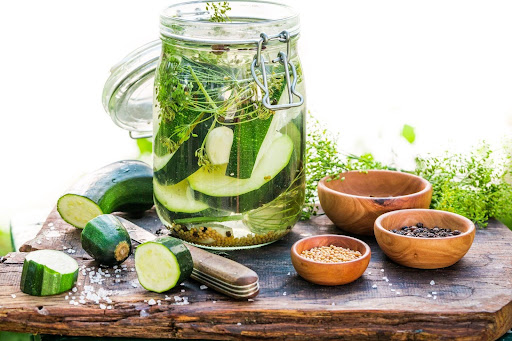Menopause Diet Plan – What to Eat and What Not to Eat
Menopause Diet: Essential Foods to Support Your Health
Menopause is a natural phase in a woman’s life, typically between 45 and 55. It marks the end of menstrual cycles and brings various physiological changes due to fluctuations in hormone levels, primarily estrogen and progesterone. These changes can result in symptoms like hot flashes, night sweats, mood swings, and weight gain. A well-balanced menopause diet plan can alleviate some of these symptoms and promote overall health and well-being. This blog will outline the dietary guidelines for menopause, emphasizing what to eat and avoid.
Dietary Guidelines for Menopause
A menopause diet plan is crucial for managing symptoms and reducing the risk of chronic conditions such as osteoporosis, heart disease, and diabetes.
Here are some essential dietary guidelines for menopause:
1. Focus on Calcium and Vitamin D

- Why: Bone health becomes a significant concern during menopause due to decreased estrogen levels, which can lead to osteoporosis.
- Sources: Include dairy products like milk, yogurt, and cheese, as well as leafy green vegetables, fortified cereals, and fatty fish like salmon.
- Guideline: Aim for 1,200 mg of calcium and 600-800 IU of vitamin D daily.
2. Incorporate Phytoestrogens

- Why: Phytoestrogens are plant compounds that can mimic estrogen in the body, potentially alleviating menopausal symptoms.
- Sources: Soy products (tofu, tempeh, soy milk), flaxseeds, and legumes.
- Guideline: Integrate these into your diet regularly to balance hormone levels naturally.
3. Increase Fiber Intake

- Why: Menopause can slow down metabolism, making weight management challenging. High-fiber foods can promote satiety and aid digestion.
- Sources: Whole grains (oats, quinoa, brown rice), fruits, vegetables, and legumes.
- Guideline: Aim for at least 25 grams of fiber daily.
4. Healthy Fats are Essential

- Why: Healthy fats support heart health, which is critical as the risk of cardiovascular disease increases after menopause.
- Sources: Avocados, nuts, seeds, olive oil, and fatty fish.
- Guideline: Include these fats while avoiding trans fats and reducing saturated fats.
5. Stay Hydrated

- Why: Hormonal changes can lead to dryness and dehydration. Proper hydration is essential for overall health.
- Sources: Water, herbal teas, and hydrating foods like cucumbers and watermelon.
- Guideline: Drink at least 8-10 glasses of water daily.
What to Eat During Menopause
1. Leafy Greens and Cruciferous Vegetables
- Examples: Kale, spinach, broccoli, Brussels sprouts.
- Benefits: Rich in calcium, magnesium, and antioxidants, these vegetables support bone health and reduce inflammation.
2. Berries and Citrus Fruits:

- Examples: Blueberries, strawberries, oranges, grapefruits.
- Benefits: High in antioxidants and vitamin C, they boost immunity and skin health.
3. Whole Grains
- Examples: Quinoa, oats, barley.
- Benefits: Provide sustained energy, high fiber content for digestion, and help maintain healthy blood sugar levels.
4. Nuts and Seeds
- Examples: Almonds, walnuts, chia seeds, flaxseeds
- Benefits: Offer omega-3 fatty acids, fiber, and protein, supporting heart health and reducing inflammation.
5. Lean Proteins
- Examples: Chicken, turkey, beans, and lentils.
- Benefits: Essential for muscle maintenance and repair, especially important as muscle mass tends to decrease with age.
6. Fatty Fish
- Examples: Salmon, mackerel, and sardines.
- Benefits: High in omega-3 fatty acids, which are crucial for heart and brain health.
7. Complex Carbohydrates
- Examples: Whole grain bread, brown rice, sweet potatoes.
- Benefits: Help stabilize blood sugar levels, reduce mood swings, and promote a steady supply of energy.
8. Magnesium-rich Foods

- Examples: Dark chocolate, bananas, spinach.
- Benefits: Magnesium is known for its calming effects on the nervous system, which can help alleviate anxiety and improve sleep quality.
9. Tryptophan-rich Foods
- Examples: Turkey, nuts, seeds.
- Benefits: Tryptophan is an amino acid that the body uses to produce serotonin, a neurotransmitter that regulates mood and sleep.
What Not to Eat During Menopause
1. Processed Foods
- Examples: Fast food, packaged snacks, and sugary cereals.
- Concerns: High in unhealthy fats, sugars, and sodium, contributing to weight gain and cardiovascular issues.
2. Sugary Beverages
- Examples: Soda, fruit juices with added sugar, and energy drinks.
- Concerns: Can spike blood sugar levels, leading to insulin resistance and increased risk of diabetes.
3. Excessive Alcohol
- Concerns: Can exacerbate menopausal symptoms like hot flashes and sleep disturbances, and increase the risk of osteoporosis.
4. High-Sodium Foods

- Examples: Canned soups, processed meats, salty snacks.
- Concerns: Can lead to high blood pressure and water retention, which can be particularly troublesome during menopause.
5. Caffeine
- Examples: Coffee, certain teas, and energy drinks.
- Concerns: May trigger hot flashes and disrupt sleep patterns.
Implementing the Menopause Diet Plan
Adopting a menopause diet plan involves making conscious choices about what you eat daily. Here are some practical tips to help you get started:
1. Plan Your Meals:
Create a weekly meal plan that includes a variety of foods from all the recommended categories. This ensures you get a balanced intake of nutrients.
2. Read Food Labels
Be mindful of the ingredients in packaged foods. Avoid those high in sugar, sodium, and unhealthy fats.
3. Snack Wisely
Opt for healthy snacks like nuts, seeds, fruit, and yogurt instead of processed chips or sweets.
4. Cook at Home
Preparing meals at home allows you to control the ingredients and avoid hidden unhealthy additives found in restaurant or takeout foods.
5. Stay Active
Combine your menopause diet plan with regular physical activity. Exercise can help manage weight, improve mood, and enhance overall health.
The Role of Supplements
While a balanced diet is the foundation of good health, sometimes it might be challenging to get all the necessary nutrients from food alone, especially during menopause. Supplements can play a supportive role:
1. Calcium and Vitamin D
- Why: If dietary intake is insufficient, supplements can help maintain bone health and reduce the risk of osteoporosis.
- Recommendation: Aim for 1,200 mg of calcium and 600-800 IU of vitamin D daily through a combination of diet and supplements.
2. Omega-3 Fatty Acids:
- Why: Omega-3 fatty acids are crucial for heart and brain health, and they can also help reduce inflammation.
- Recommendation: Consider fish oil supplements if you don’t consume enough fatty fish like salmon or mackerel. Look for supplements that provide at least 1,000 mg of EPA and DHA combined.
3. Multivitamins
- Why: A multivitamin formulated for women over 50 can ensure you’re getting essential nutrients that might be lacking in your diet, such as B vitamins, magnesium, and vitamin E.
- Recommendation: Choose a high-quality multivitamin designed specifically for menopausal women to address unique nutritional needs.
4. Herbal Supplements
- Why: Some herbs are believed to help alleviate menopausal symptoms such as hot flashes, mood swings, and night sweats.
- Recommendation: Black cohosh and red clover are popular choices, but it’s essential to consult a healthcare provider before starting any new supplement to ensure they are safe and appropriate for your individual health needs.
5. Trans-Resveratrol
- Why: Trans-resveratrol is a compound found in red wine and certain berries. It has antioxidant properties and may help alleviate some menopausal symptoms by mimicking estrogen.
- Recommendation: Supplements containing trans-resveratrol can support heart health and potentially improve menopausal symptoms. Consult with a healthcare provider to determine the appropriate dosage.
Final Thought!
Managing menopause effectively involves a holistic approach, with diet playing a pivotal role. By following the dietary guidelines for menopause, incorporating nutrient-rich foods, and avoiding those that exacerbate symptoms, you can enhance your quality of life during this significant phase.
Each woman’s experience with menopause is unique, and what works for one may not work for another. Therefore, personalization is key. It’s important to listen to your body and make adjustments that suit your individual needs.
Take control of your menopause journey today! Download the Miror app and get personalized nutrition plans designed to help you feel your best. Start your journey towards better health and well-being with Miror – your trusted partner in navigating menopause.
Why Choose Miror?
- Customized Nutrition Plans: Get meal plans that cater specifically to your dietary needs during perimenopause and menopause.
- Expert Guidance: Access advice from nutritionists and health experts to help manage menopausal symptoms effectively.
- Community Support: Connect with other women going through similar experiences, share tips, and find encouragement.





